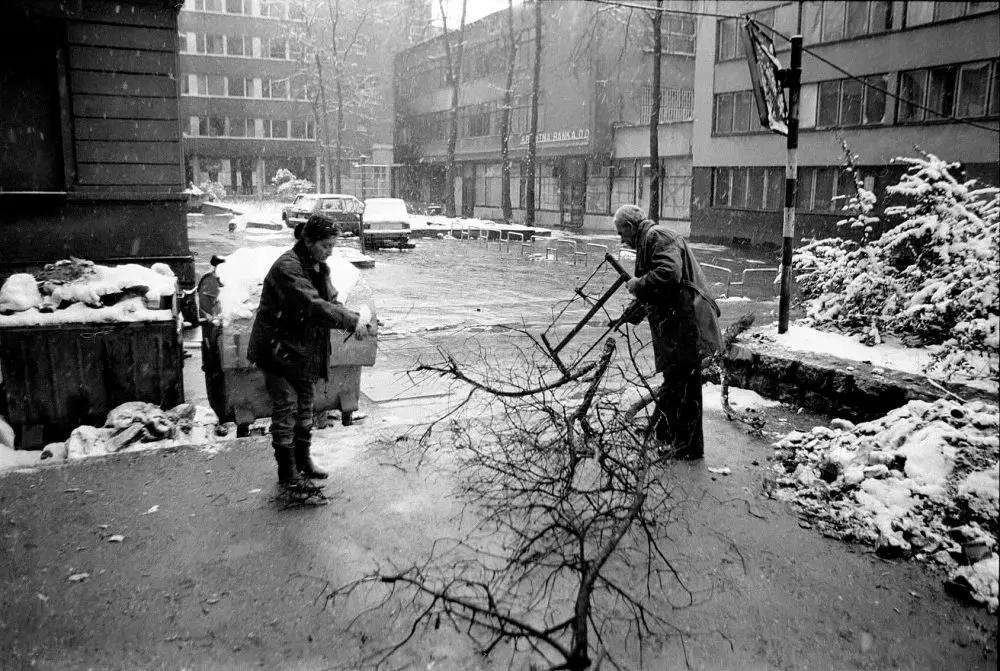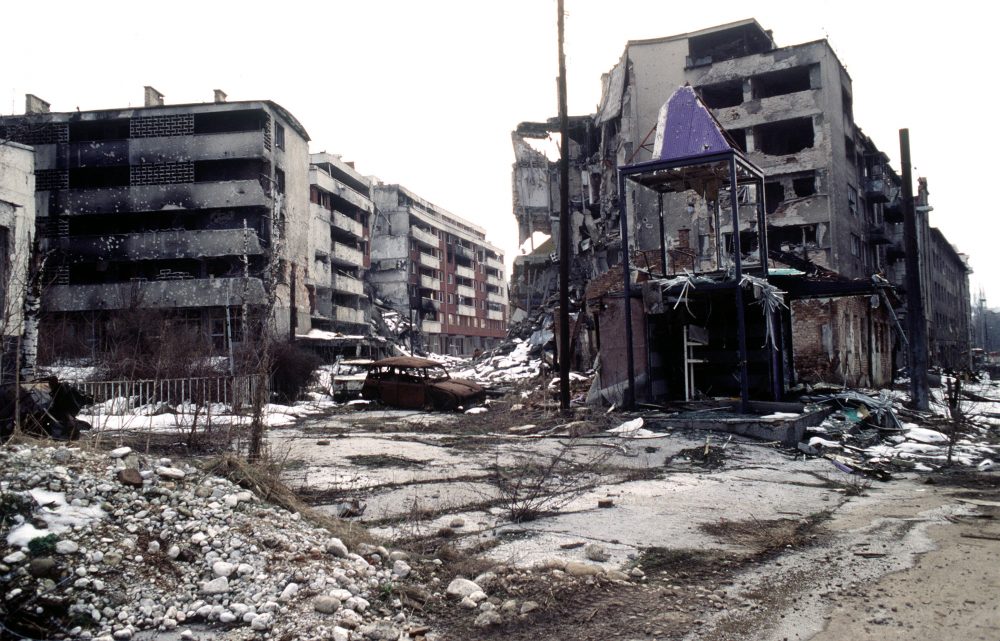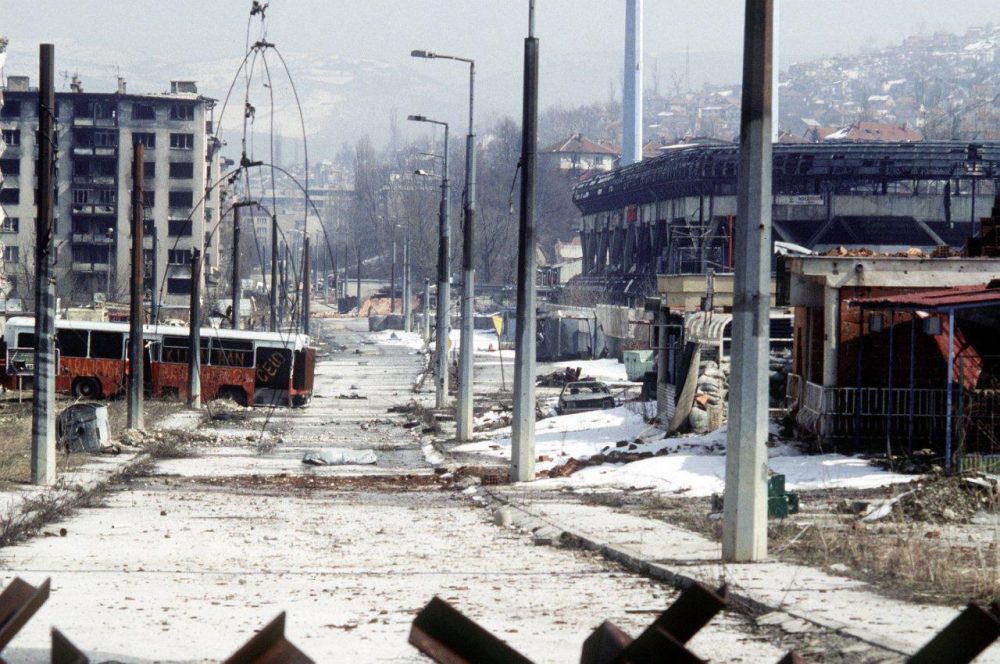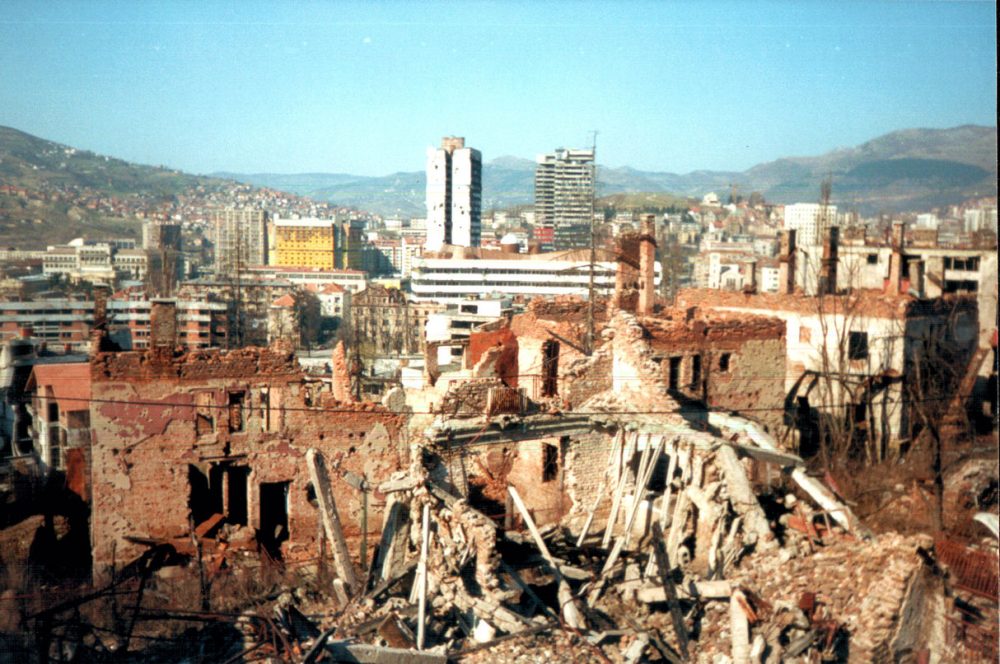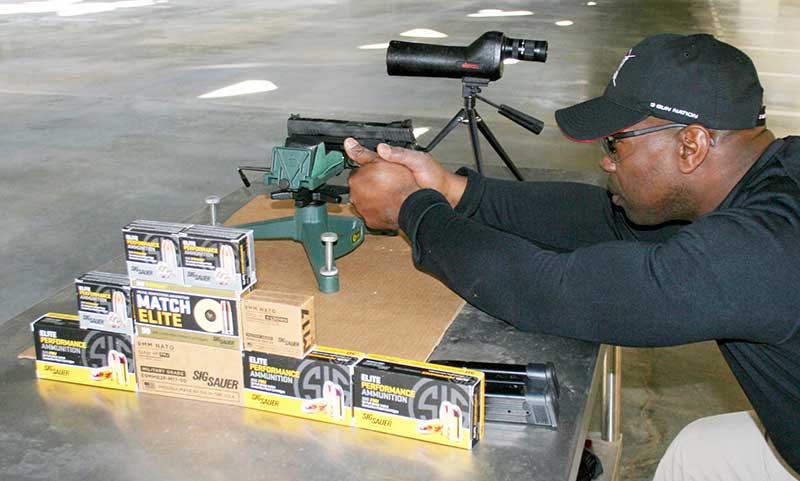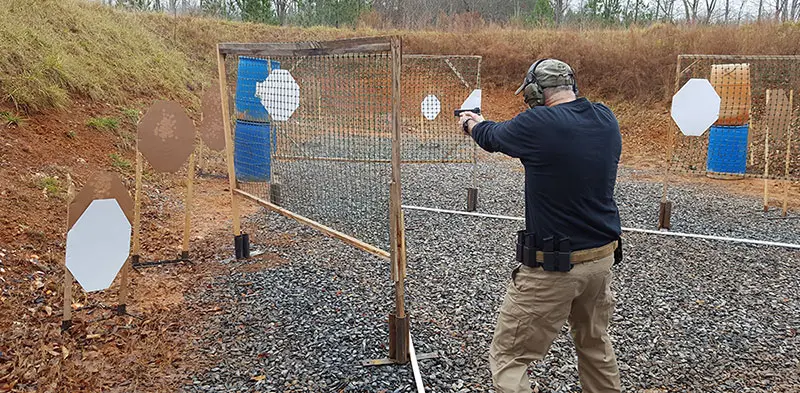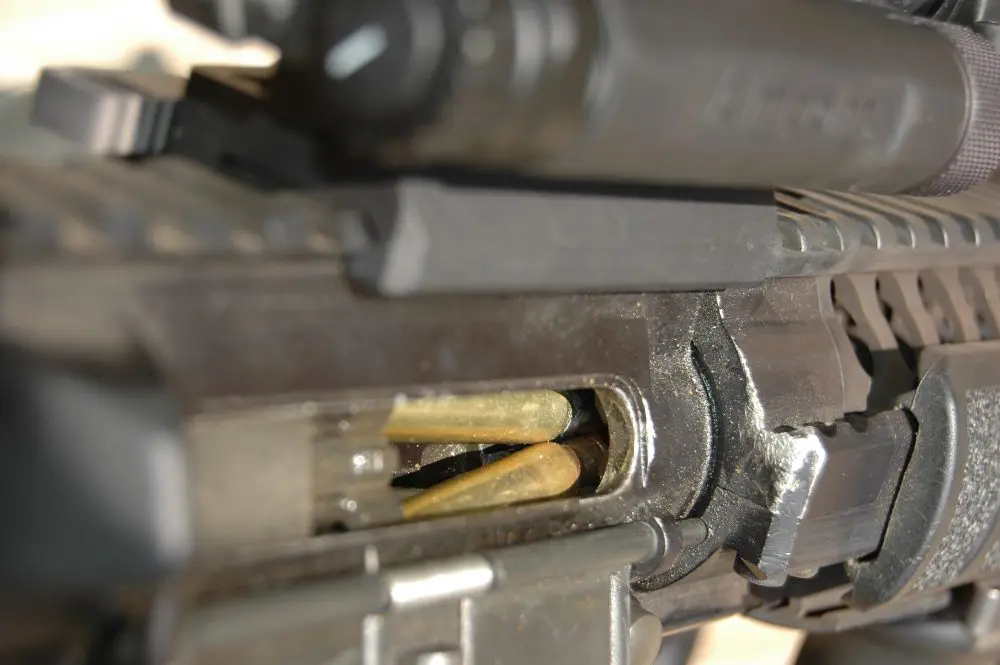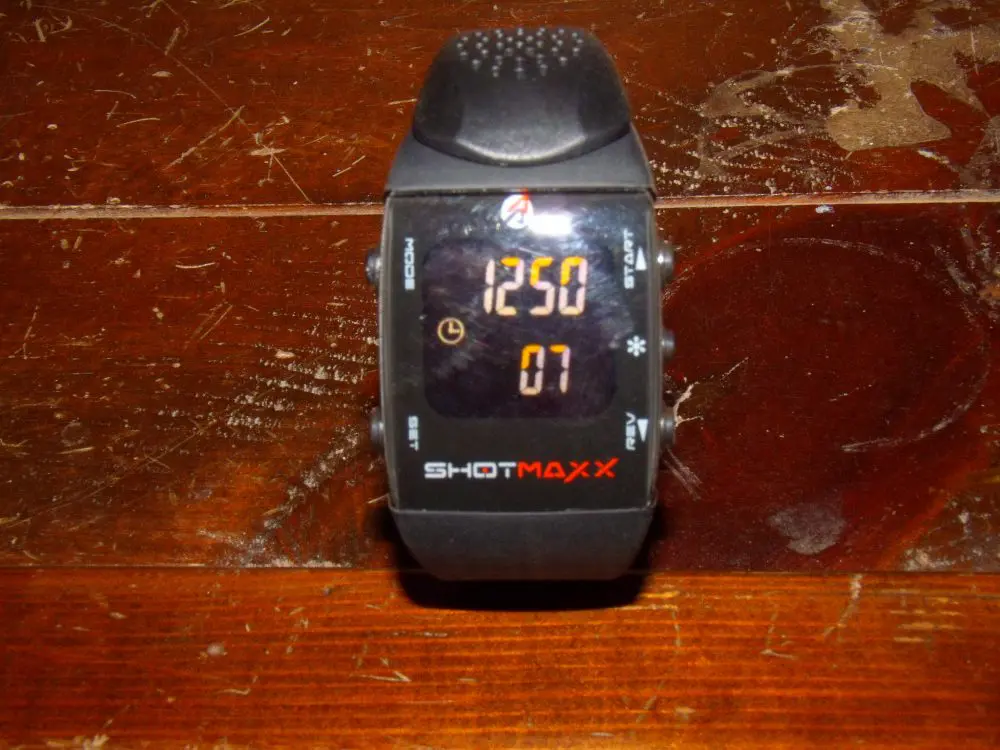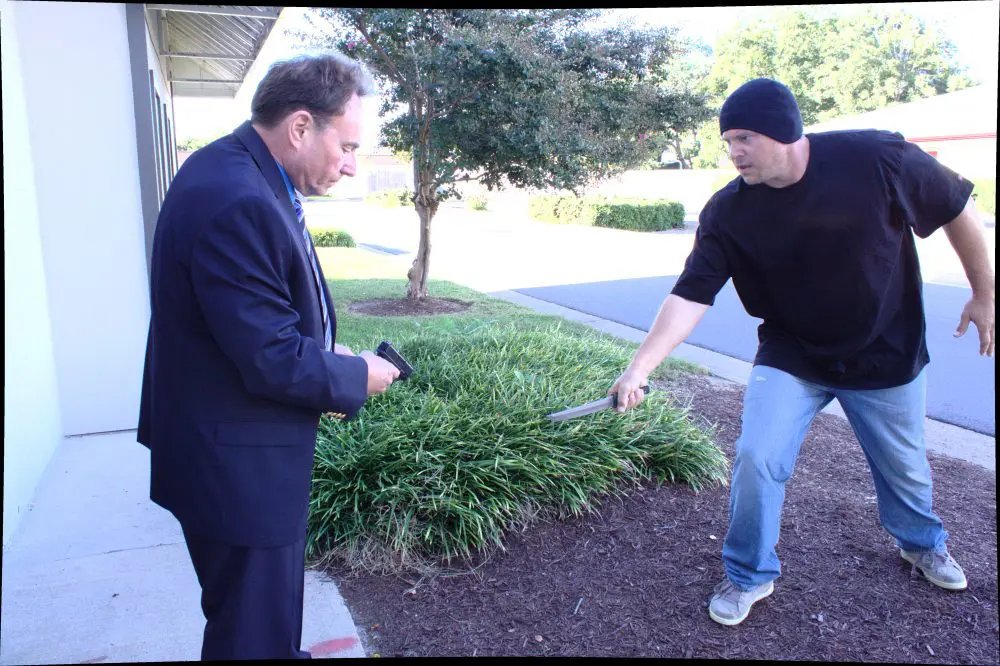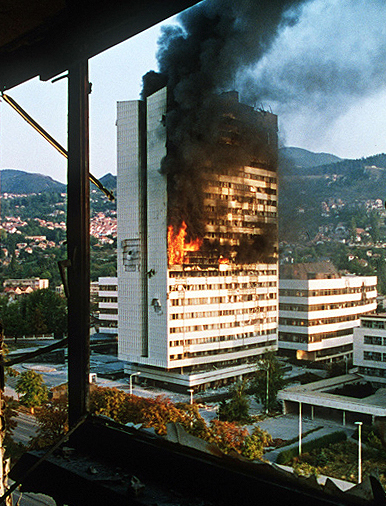
Teddy Roosevelt’s candor was good for many quotes, and one of my favorites is his advice to “do what you can, with what you have, where you are.” The “what you have” part can be influenced in advance by planning and preparation. But the uncomfortable reality of having to do what you can “where you are” is a contingency that many survival-oriented folks do not realistically address. Often this possibility is optimistically not addressed at all. Optimists have an advantage as survivors, but Pollyannas do not.
How truly useful is a bug-out bag stuffed to the point of being an impossible burden, intended to be carried to a safe haven that may not be safe, just different, or that might be unreachable even if it were safe?
Maybe we should look for lessons among others’ survival experiences during recent times of societal collapse as to what was valuable when leaving was not an option.
We need look no further than the former Yugoslavian fragments, Bosnia in particular, in the early 1990s where internecine fighting and anarchy lingered like an incurable fungus and populations under siege simply had no possibility of bugging out.
Table of Contents
SUPPORTING SURVIVAL IN A TRAP
“I know one thing, if we had some way out from the town, we would use it, [but] we did not have it…. In my case, migration did not happen because it happened very fast, another army just closed the city in a ring and that’s it, if you ask me where was that army and how we did not see them coming, the answer is simple, that army was an ally of army of my side and people, and one day we woke up and figured they are enemy now and they are closing all ways out…”
These are the words of one survivor of the Bosnian conflict, a medical professional who writes under the name “Selco” and has been extraordinarily candid and articulate in recalling his experiences and lessons learned.
Accessing the most favorable environs for survival is always the better option. But it’s far better to also prepare for the contingency of that not being possible. It happened a lot in the recent Balkan troubles, especially in Bosnia. Selco’s observations, and those of others who survived, regarding what items proved personally invaluable—or proved excellent trade goods because they were invaluable to others—are insightful. When you’re stuck where you are with no re-supply, even everyday items can assume great value.
Grbavica, a neighborhood in Sarajevo, four months after Dayton Peace Accord officially ended war in Bosnia. Areas such as this, which were in a crossfire, were untenable for survival attempts. Photo: Wikipedia
BORROW A CUP OF SUGAR? NOT LIKELY
There are a lot of practical lessons we can extract from among those who survived the anarchy and privation. Those who did not survive often fell victim to situations and shortages that we may learn how to anticipate and avoid. One sweeping difference between Bosnia and a possible worst-case scenario in North America is that they mostly did not have time, warning or the resources to prepare in advance.
One common denominator between the Balkans and urban areas of North America is that there was, and here probably would be, an early effort on the part of authorities to keep everyone where they were. Also predictable is a near-total collapse of societal structure, effective government, and law enforcement—as well as infrastructure such as water, electricity, fire-ambulance-medical services, transport nets, food distribution, communications or even the material resources to do this for yourself.
Downtown Grbavica was shot to pieces and uninhabitable, but houses in surrounding hills sheltered people with no place to go. Photo: Wikipedia
Link this to the strong possibility you may never make it to your survival redoubt. Now what do you do? With what you have? Where you are? Hunkering down may not be your first choice, but if it is the only option available, it will be easier if you already have what you need.
It was not only the centuries-long and dangerously repressed enmity among ethnic groups that led to the recent Hatfield-McCoy bloodshed in the Balkans.
Outside governments, individuals and groups who identified with various parties fueled the fire in support of their surrogate home team. And when geographically partial resolution was effected here and there through armed conflict, even among the “victorious” enclaves, alliances of convenience dissolved, and shortages, privation—and the numbing effect of the brutality they had gone through—drove survivors to fight neighbor against neighbor, clan against clan, and even brother against brother.
And throughout this anarchy, armed gangs with no allegiance ran freely amok.
Less than a decade after Sarajevo hosted Winter Olympics, residents risk snipers to scrounge firewood for heating water and possibly take chill off apartments in improvised stoves. Photo: Christian Marechal, via Wikipedia
IT MAY BE A LONG HAUL
When philosophers from Plato to Franklin observed that there is no good war and no bad peace, they may have been considering civil wars as well. Parties in the Balkans haven’t sorted it out in the last several hundred years, so we will only study the survivors, to learn what we can of which survival supplies became crucial when they were trapped where they were. As a rule, what they had was meager indeed because they had no chance to stockpile, hide and later access supplies.
Those of peaceful intent are commonly caught up in wars, and whether they survive often has a lot to do with preparations they made well in advance. If active military operations, even of a partisan nature, come to your hometown, there is not a lot you can expect to do except duck and run.
Maybe not even run. It was a long time after active military actions, except for snipers and lingering skirmishes, had ended before normalcy returned to Bosnia. Having lain in supplies may make or break your ultimate survival.
During and following these times in Bosnia, the biggest enemy proved to be newly formed gangs of thieves and brigands who sometimes portrayed themselves as a protective militia, but sometimes didn’t bother with this ruse. Some of them had been neighbors and associates only weeks before. And sometimes, alas, even official entities.
Life among the rubble: destroyed district of Sarajevo during siege shows little left to support life. Photo: Hedwig Klawuttke, via Wikipedia
LESSONS FROM A RECENT MODEL
Conditions are different in Europe, of course, especially in the east, where socialism affected everything from attitudes to architecture. Distances are much shorter, and society is more compact.
Construction of individual homes is more likely to be of masonry with ceramic tile roofs. Individual homes are more likely to have masonry perimeter walls around them. Apartments are generally made of masonry, often cast concrete. A waferboard and stucco tinderbox edifice is still rare in Europe.
Even with no water, sewer, gas or electricity, apartment dwellers in Bosnia were often able to band together and survive in these manmade caves, which would seldom be practical for apartment dwellers here, just from the fire hazard alone.
Homes in North America have a 50-50 chance of being highly flammable and mostly indefensible wood construction. A typical middle- or working-class home in the U.S. is more likely to have only a wooden privacy or chain-link doggie fence—if anything. Some communities actually have ordinances against fences.
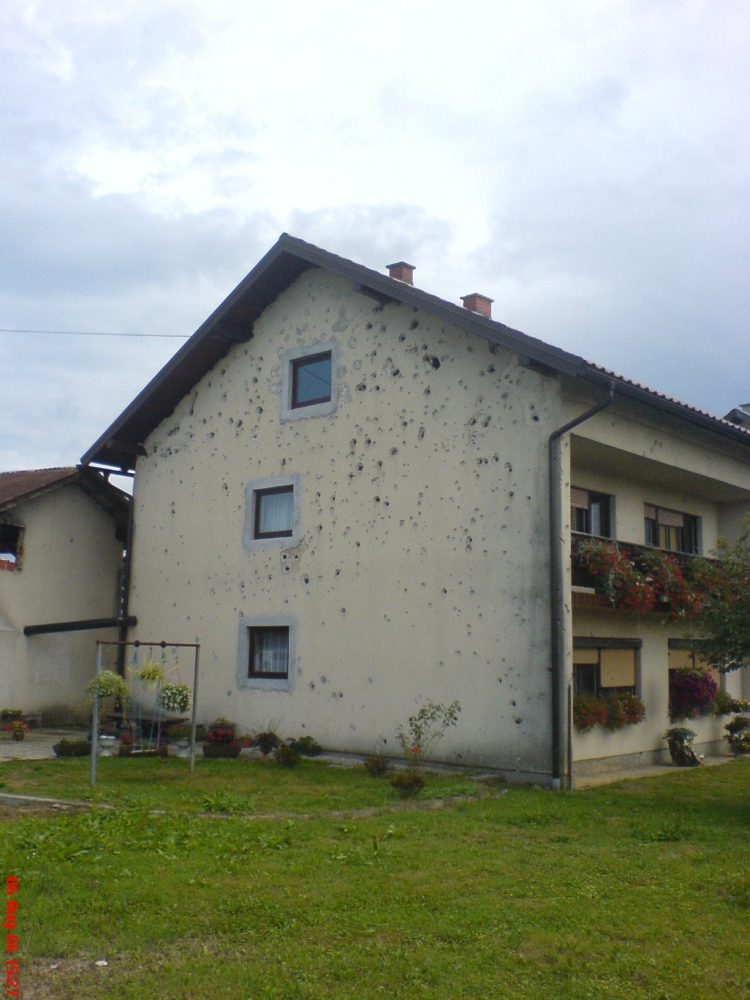
Gated communities provide a false sense of security with a cinderblock-and-stucco fence that any pickup can drive through—and a doddering, unarmed door-shaker at the “gate,” which itself often comprises only a fiberglass pole that he lifts to admit the pizza guy.
Such “gated” communities may be safe from aluminum-siding solicitors and may discourage the garden-variety drive-by shooting or other everyday hassles, but in a scenario where anarchy reigns, they are more likely to attract trouble than be any practical defense against it.
It would discourage only the dilettanti among roving gangs of hoodlums or opportunity seekers, but would be a magnet for the more experienced bad actors whose antisocial impulses were no longer restrained.
It was predicable, almost the rule, for obviously prepared and defended homes to be attacked and looted first in Bosnia, because it was obvious they held something good.
The cardinal rule, whether on the street or in preparing a home for defense, is to look uninteresting. In other words, if you look like you have something to defend, you probably will have to. Especially if you have a known supply of priceless food, guns and ammunition because you like to posture and wear your cammies to Wal-Mart.
TIDE, TP AND TOBACCO
The experiences of those who survived the recent anarchy in the Balkans are partly products of specific geography and culture, but they contain a wealth of lessons for those who would survive the same sort of anarchy in a different setting, because the human capacity for good or ill is universal.
Let’s see which supplies proved invaluable for sustenance, shelter, health, hygiene, trade, and personal defense in their situation. You can extrapolate what would have value in the scenario you anticipate for you and yours. Some surprisingly ordinary commodities assume great value when nobody has any.
Following is simply an annotated list of supplies that proved of immense help in an urban setting that had devolved into anarchy. Few items listed here directly supply shelter, as the presumption is you are holed up in shelter already. This is not a master list, but may reinforce the importance of items already on your agenda or items you may not have been considering.
THE LIST
- Alcohol: Rubbing alcohol is cheap for topical medicine, hygiene, cleaning. See also Booze.
- Arms: It is assumed you have defensive weapons appropriate for your situation, and supplies to keep them running. Anything more is a story for another campfire, except to note that common-caliber ammo might be the premium trade good.
- Baking Soda: Dentifrice, medicine, hygiene, fire fighting.
- Bleach: Liquid bleach only lasts six months. Calcium or sodium hypochlorite briquettes or prill is good for years if kept dry. Buy in bulk at pool suppliers. A 5% solution makes bleach. Eight drops of this disinfects a gallon of water. Of great importance for hygiene.
- Booze: Eastern Europeans consider booze a staple food. I do not. But it has medicinal use and trades well.
- Charcoal Briquettes: Efficient cooking/heat source, no-hassle indefinite storage, trade.
- Composting Toilet: For when the water stops.
- Fire Extinguishers: Small powder type and appropriate water-based types such as “Indian Can” hand-pump sprayers.
- Food: As a second-tier contingency operation, you can get by with true survival chow: grains, peas, beans. What do you think a Stalingrad survivor would have traded for a bag of American dry dog food in the winter of 1944? Sprout grains and beans for greens. Freeze-dried meat if you can; salt, pepper, coffee, sugar, yeast.
- Garbage Bags: Assorted sizes, regular/heavy. For storage, shelter, hygiene.
- Hand Grinder: To make flour.
- Hydrogen Peroxide: Medicine, hygiene, cleaning.
- Hygiene Products: Per anticipated need.
- Knives: Universal tool, occasionally an adequate weapon. Cheap folders make excellent trade goods.
- Lighters: Zippo type with lots of flints are multi-fuelers. Bic disposables are good trade.
- Matches: Book matches are cheap now, expensive later. Strike-anywhere kitchen matches are multi-purpose.
- Medicines: Any prescription maintenance meds your family needs, plus broad-spectrum oral antibiotics such as Cipro (many antibiotics are available from veterinary supply), topical antibiotic salves, Bag Balm or similar carbolated salve, burn salve, toilet lanolin, ophthalmic ointment, Orajel/clove oil, toothbrushes/powder, floss, antacid tablets, anti-diarrheal tabs such as loperamide, laxatives, microbicidal iodine syrup concentrate (Betadine), sterile bandages and strips, cotton, gauze, adhesive tape, aspirin, ibuprofen, Excedrin, antifungals (tolnaftate-based powder, liquid, cream), sterile needles and thread, scalpel set, thermometer, surgical masks, rubber gloves, duplicate eyeglasses, iodine water tablets, vitamins, caffeine pills.
- Seeds: For fast-growing veggies (e.g., greens). You cannot eat seeds themselves because they’re treated.
- Soap: Bar soap, laundry soap. Get extra for trade.
- Space Blankets: Get generic, get many. Multi-purpose, excellent trade.
- Tobacco: Smokes or chaw as you need. Bulk cans and unopened papers may be tasty if you run out, and trade well. Cheap pipes.
- Tools: Basic hand tools needed to modify house or furniture for fuel or barricades. Duct tape, small rolls of fine galvanized wire, pocket candy tins of salvaged screws.
- Toilet Paper: Americans are pampered, but the plumbing and proletariat in Eastern Europe were accustomed to torn strips of Pravda. Generic TP is likely good trade here. Selco noted that when he had TP, it was used for trade, not tidiness.
- Watches: Cheap battery watches (and batteries) for trade.
- Water: Get barrels, garbage cans, hand purifying filter, and jugs now.
- Writing:Lined tablets, ballpoint pens.
IN-DEMAND ITEMS
A close friend made many Balkan trips in support of family members. International travel remained possible between major cities, and customs inspections grew lax in proportion to local privation. If you brought something the locals needed, you would not be hassled, except a small share for the official.
Every trip he was laden with specific requests. Some were seasonal: trigger-finger mittens, gloves, wool socks, seeds, specific meds. Some were always in demand: smokes (anything in a red and white box), sewing thread, needles, yarn, freeze-dried food, ibuprofen, cocoa, instant coffee, Zippo flints, rechargeable small batteries, toothbrushes. Some trade goods consistently evaporated at customs, such as pocket knives and pen lights. He took to packing sacrificial Hershey bars and stray packs of Kent cigarettes.
KEEPING IT
Hide your supplies carefully and creatively. Odds are that opportunistic thieves and brigands will not be equipped with the same cache-locating technology as official thieves and brigands. Keep the fact that you have it absolutely private. Duh.
Taking advantage of your trade goods requires reason and common sense. Some time-tested rules from the trenches include never trading at home or for large amounts. Trading at home identifies your home as a source of supply. Trading for large amounts identifies you personally as a source of supply. Neither are good.
